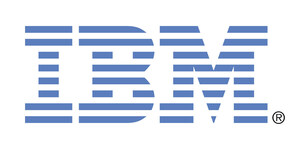ARMONK, N.Y. and ITHACA, N.Y., June 23, 2017 /PRNewswire/ -- IBM (NYSE: IBM) and Cornell University, a leader in dairy research, today announced a new collaboration using next-generation sequencing combined with bioinformatics designed to help reduce the chances that the global milk supply is impacted by safety breaches. With the onset of this dairy project, Cornell University has become the newest academic institution to join the Consortium for Sequencing the Food Supply Chain, a food safety initiative that includes IBM Research, Mars, Incorporated and Bio-Rad Laboratories, Inc.
"Through this partnership with Cornell University, we are extending the Consortium work to a broader range of ingredients, leveraging artificial intelligence and machine learning, to gain new insights into how microorganisms interact within a particular environment," said Jeff Welser, vice president and director, IBM Research - Almaden.
The opportunity for improving food safety is large; the U.S. Department of Agriculture estimates that Americans consume more than 600 pounds of milk and milk-based products per person per year. Fresh food such as meat, dairy, and produce represent a great risk for food safety incidents.
Specifically, raw milk is the main ingredient used in pasteurized milk for drinking, infant formula, cheese, yogurt and other common grocery items. Normally, raw milk samples are tested for a few specific groups of bacteria. However, the Consortium for Sequencing the Food Supply Chain is using the community of microbes or bacteria known as the microbiome to characterize the food samples at an unprecedented resolution. By sequencing and analyzing the DNA and RNA (genetic code) of food microbiomes, researchers plan to create new tools that can help monitor raw milk to detect anomalies that represent food safety hazards and possible fraud.
Characterizing what is "normal" for a food ingredient can better allow the observation of when something goes awry. Detecting unknown anomalies is a challenge in food safety and serious repercussions may arise due to contaminants that may never have been seen in the food supply chain before.
"As a global leader in food safety and dairy research, we are committed to using our multidisciplinary expertise to secure the world's food supply against harmful microbial contamination," said Kathryn J. Boor, the Ronald P. Lynch Dean of the College of Agriculture and Life Sciences. "Bringing Cornell into a private-public partnership with IBM, a world leader in technology and innovation, has the potential to deliver transformative research in the area of food safety and health."
While many food producers already have rigorous processes in place to ensure food safety hazards are managed appropriately, this pioneering application of genomics will be designed to enable a deeper understanding and characterization of microorganisms on a much larger scale than has previously been possible. Consortium researchers will conduct several studies comparing the baseline data of raw milk with known anomalies to help create proven models that can be used for additional studies. They will continue to provide innovative solutions that can potentially minimize the chance that a food hazard will reach the final consumer and provide a tool to assist against food fraud.
The Consortium for Sequencing the Food Supply Chain was officially launched in January 2015 by IBM Research and Mars, Incorporated. Bio-Rad Laboratories, Inc. a global provider of life science research and clinical diagnostic products, joined the Consortium in 2016. This collaborative food safety initiative will leverage advances in next-generation sequencing to further the understanding of what can help make food safe. The consortium is conducting the largest-ever metagenomics study to categorize and understand microorganisms and the factors that influence their activity in various food matrices. This work could eventually be extended into the larger context of the food supply chain — from farm to fork — and, using artificial intelligence and machine learning, may lead to new insights into how microorganisms interact within a particular environment.
The research project will collect genetic data from the microbiome of raw milk samples in a "real-world" scenario at Cornell's Dairy Processing Plant and farm in Ithaca, N.Y. The facility is unusual in that it represents the full dairy supply chain – from farm to processing to consumer. This initial data collection will form a raw milk baseline and be used to further expand existing Consortium bioinformatic analytical tools.
"As nature's most perfect food, milk is an excellent model for studying the genetics of food. As a leader in genomics research, the Department of Food Science anticipates this research collaboration with IBM can lead to exciting opportunities to apply findings to multiple food products in locations worldwide," said Martin Wiedmann, Gellert Family Professor in Food Safety and Cornell Institute for Food Systems faculty fellow at Cornell's College of Agriculture and Life Sciences.
"We are thrilled to collaborate with Cornell to develop new ways to help keep our food supply safe before fraud or contamination hits by developing advanced algorithms, applying machine learning and mathematical modeling to sequence data," said Kristen Beck, technical lead researcher for the Consortium for Sequencing the Food Supply Chain, IBM Research - Almaden. "Safe food is the first step toward human health. We're extremely optimistic that with Cornell's involvement in the Consortium we will make a difference in improving not only food safety, but our overall health as well."
For more information about the Consortium visit: Sequencing the Food Supply Chain.
Photo Library: ttps://flic.kr/p/qG9b9B
About IBM Research
For more than seven decades, IBM Research has defined the future of information technology with more than 3,000 researchers in 12 labs located across six continents. Scientists from IBM Research have produced six Nobel Laureates, 10 U.S. National Medals of Technology, five U.S. National Medals of Science, six Turing Awards, 19 inductees in the National Academy of Sciences and 20 inductees into the U.S. National Inventors Hall of Fame. For more information about IBM Research, visit www.ibm.com/research.
| Contacts: |
|
| Caroline Yu Vespi |
Matt Hayes |
| External Relations Lead |
Managing Editor & Social Media Officer |
| IBM Research – Almaden |
Cornell College of Agriculture & Life Sciences |
| 925-212-9184 |
607-255-2204 |
SOURCE IBM
Related Links
WANT YOUR COMPANY'S NEWS FEATURED ON PRNEWSWIRE.COM?
Newsrooms &
Influencers
Digital Media
Outlets
Journalists
Opted In




Share this article